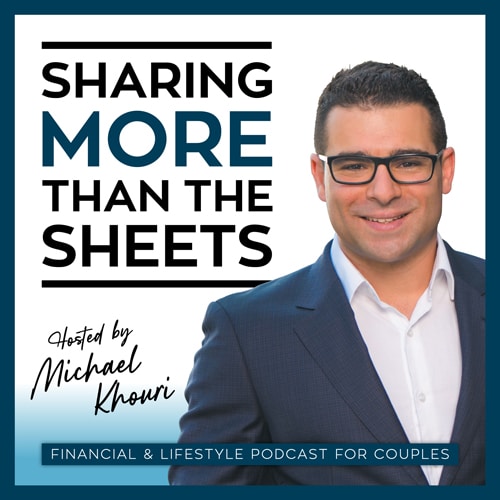Start early to get your kids on track for the future
Raising your kids to be smart with money gives them vital life skills.
As a parent, you can shape your child’s relationship with money. Start early by showing them where money comes from, how to budget, spend wisely and set savings goals.
Talk to your kids about money
You don’t need to be an expert to teach kids about money. When you can, whether at home or when you’re out, start a conversation about money. By doing this, you make money part of everyday life.
Your kids will ask you for the things they want. It can be hard to say no. Talk about how there is only so much money. Say you need to stop and think before deciding how to spend it.
How you earn money
Describe how you earn the money you spend. Explain that you get a certain amount of money each time you get paid. Say how you use that money to cover the essentials, like food, clothes and housing.
Needs and wants
Talk about how you prioritise what you spend your money on. Discuss the difference between ‘needs’ and ‘wants’ — must-haves and nice-to-haves. Encourage your kids to think about needs and wants before spending money.
Track your spending
When older kids get their first job, they may be tempted to spend all their money at once. Show them how to track their spending to see where their money is going.
Show your kids where money goes
Find everyday moments to teach your kids about money — where it comes from and where it goes.
When you tap and pay
Explain that when you tap your card, it talks to your bank where your money is. When you tap to pay you use money that you’ve made by working and saving. Each time you tap and pay, you have less money in your account at the bank.
While shopping
While shopping, teach your kids how much things cost:
- show them how similar items have different prices
- compare how much lower the price is with a special deal or discount
- look for the unit price (for example, price per 100g) under the main price
- use the unit price to work out which item is better value
When paying bills
Show your kids an electricity bill or phone bill. Explain how many hours or days you had to work to earn the money to pay that bill.
This will help them start to connect work with how you pay for things.
Get kids involved in money decisions
As your kids get older, get them involved in budgeting, saving and spending.
Check deals
Work with your kids to research online or shop around to find the best deal for something they want.
Plan an event
Involve your kids in planning and budgeting for an outing or a birthday party. Work through the costs with them, such transport, food, tickets or activities.
Do a budget
Do the family budget with your kids. Explain how much money you have each week and how you spend and save it. They’ll start to get a sense of the cost of living and how long it takes to save.
If they are earning money, help them create their own budget.
Share their money
Encourage your kids to donate some of their savings to charity. Get them to choose which charity to donate to. Talk about how good it feels to help others.
This teaches them you can use money for more than just buying things.
Give kids pocket money
Pocket money can help your kids to understand the value of money.
You can choose to pay them for certain tasks, such as:
- mowing the lawn
- vacuuming the house
- making school lunches
- hanging out and bringing in the washing
- packing and unpacking the dishwasher
- washing the car
- taking the rubbish out
- walking the dog
Make sure you withhold their pocket money if they don’t do the tasks. Or reduce the payment if they don’t do a task as agreed.
This teaches kids that they only get paid when work has been done to a certain standard.
Encourage your kids to save
Learning to save is an essential money skill.
Piggy banks and bank accounts
Piggy banks are great for younger kids. Even though money is increasingly virtual, coins and notes help kids see and understand money. They can see their money grow as they save.
Opening a savings account is a good way to introduce kids to banking, saving and interest.
There are also apps to help kids save pocket money and learn good money habits.
Set money goals
Help your kids avoid impulse buys by teaching them to set goals and prioritise how they spend their money.
When your child wants to make an impulse buy, remind them about the goal they’re saving for. Get them to work out how much longer it will take to reach their goal if they spend today.
.
.
Wealthness Pty Ltd ABN 13 231 248 112 [t/a Better Financial Planning Australia] is a Corporate Authorised Representative of Infocus Securities Australia Pty Ltd ABN 47 097 797 049 AFSL No. 236523. It is important to be aware that Better Financial Planning Australia is not authorised by Infocus to provide advice relating to credit services or property advice. Infocus is not responsible for any advice outside of the scope of this authorisation and should you wish to act on any of this general information, please first seek professional financial advice.
Wealthness Pty Ltd t/as Better Financial Planning Australia will endeavour to update the website as needed. However, information can change without notice and Wealthness Pty Ltd t/as Better Financial Planning Australia does not guarantee the accuracy of information on the website, including information provided by third parties, at any time.
This information is of a general nature only and neither represents nor is intended to be specific advice on any particular matter. Infocus Securities Australia Pty Ltd strongly suggests that no person should act specifically on the basis of the information contained herein but should seek appropriate professional advice based upon their own personal circumstances. Although we consider the sources for this material reliable, no warranty is given and no liability is accepted for any statement or opinion or for any error or omission.
Wealthness Pty Ltd t/as Better Financial Planning Australia does not give any warranty as to the accuracy, reliability or completeness of information which is contained in this website. Except insofar as any liability under statute cannot be excluded, Wealthness Pty Ltd t/as Better Financial Planning Australia and its employees do not accept any liability for any error or omission on this website or for any resulting loss or damage suffered by the recipient or any other person.
Wealthness Pty Ltd (ACN 613 313 250) [t/a Better Financial Planning Australia] Corporate Authorised Representative of Infocus Securities Australia Pty Ltd ABN 47 097 797 049 AFSL Licence No. 236523.
Source: ASIC MoneySmart


